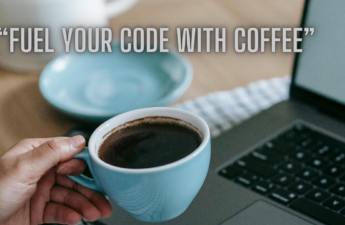Introduction
Table of Contents
Are you interested in learning how to program but don’t know where to start? Programming is an essential skill in today’s digital world, offering career opportunities, problem-solving abilities, and even the chance to build your own applications. This guide provides an in-depth roadmap to help beginners start programming and progress towards becoming proficient developers.
Why Learn Programming?
Before diving in, it’s important to understand the benefits of learning programming:
- High Demand: Programmers are needed in almost every industry, from healthcare to finance and entertainment.
- Problem-Solving Skills: Programming teaches logical thinking, creativity, and the ability to break down complex problems.
- Career Opportunities: High-paying jobs are available in software development, data science, cybersecurity, AI, and game development.
- Automation & Efficiency: Learning to code allows you to automate repetitive tasks and increase productivity.
- Freelancing & Entrepreneurship: You can work independently, build your own products, or create software solutions for businesses.
Step-by-Step Guide to Start Programming
1. Choose the Right Programming Language
Selecting a programming language depends on your goals. Here are some recommended options based on different fields:
For Beginners:
- Python: Easy to learn, used in web development, AI, data science, and automation.
- JavaScript: Essential for web development, works with both frontend and backend.
- C: Teaches fundamental programming concepts, great for understanding computer science basics.
For Specific Fields:
- Web Development: HTML, CSS, JavaScript, PHP, TypeScript
- Mobile App Development: Swift (iOS), Kotlin (Android), Flutter (cross-platform using Dart)
- Game Development: C++, C#, Unity, Unreal Engine
- Data Science & AI: Python, R, SQL
- Embedded Systems & IoT: C, C++, Rust
- General-Purpose Programming: Java, Python, C++, Go, Rust
If you’re unsure, Python is highly recommended due to its simplicity and widespread use.
2. Learn the Basics
Understanding fundamental programming concepts is crucial. Some essential topics include:
- Variables and Data Types: How data is stored and manipulated.
- Operators and Expressions: Arithmetic, logical, and comparison operations.
- Conditional Statements: If-else statements, switch-case.
- Loops: For loops, while loops, do-while loops.
- Functions and Methods: Creating reusable code blocks.
- Object-Oriented Programming (OOP): Classes, objects, inheritance, encapsulation, polymorphism.
- Error Handling and Debugging: Identifying and fixing bugs.
There are many online resources, such as freeCodeCamp, Coursera, Udemy, and YouTube tutorials, that can help beginners learn these concepts step by step.
3. Set Up Your Development Environment
To start coding effectively, you need the right tools:
- Text Editors & IDEs: VS Code, PyCharm, IntelliJ IDEA, Sublime Text, Eclipse.
- Version Control: Git & GitHub for managing and sharing code.
- Compilers & Interpreters: Based on your chosen language (e.g., GCC for C/C++, Python interpreter for Python).
- Command Line Basics: Essential for interacting with files and executing scripts efficiently.
4. Practice with Small Projects
The best way to solidify programming concepts is by building small projects. Here are some beginner-friendly ideas:
- A simple calculator
- A to-do list application
- A personal portfolio website
- A weather app using API integration
- A number guessing game
- A basic CRUD (Create, Read, Update, Delete) web application
5. Use Online Coding Platforms
To practice coding challenges and improve problem-solving skills, try:
- LeetCode (for coding interviews)
- HackerRank (for skill-building and competitive programming)
- Codewars (for fun coding challenges)
- Project Euler (for mathematical problem-solving)
6. Join a Coding Community
Being part of a community keeps you motivated and helps with troubleshooting. Some great communities include:
- GitHub: Collaborate on open-source projects and showcase your work.
- Stack Overflow: Ask and answer programming-related questions.
- Reddit & Discord Coding Groups: Engage with other learners and programmers.
- Meetups & Hackathons: Participate in coding events to gain experience.
7. Build Real-World Projects
Once you’re comfortable with the basics, start working on more advanced projects, such as:
- A full-fledged blogging platform
- An e-commerce website with a shopping cart
- A personal finance tracker
- A mobile app for task management
- A chatbot using AI/ML techniques
- A social media dashboard with analytics
8. Learn Advanced Topics
As you progress, explore these advanced concepts to enhance your programming skills:
- Data Structures & Algorithms: Arrays, linked lists, trees, graphs, sorting algorithms, recursion.
- Databases: SQL (MySQL, PostgreSQL) and NoSQL (MongoDB, Firebase).
- APIs & Backend Development: RESTful APIs, GraphQL, server-side programming (Node.js, Django, Flask, Laravel).
- Cloud Computing & DevOps: AWS, Azure, Google Cloud, Docker, Kubernetes.
- Cybersecurity & Ethical Hacking: Penetration testing, secure coding practices.
- Artificial Intelligence & Machine Learning: Neural networks, NLP, deep learning frameworks (TensorFlow, PyTorch).
Frequently Asked Questions (FAQs)
1. How long does it take to learn programming?
It depends on your dedication and the complexity of the language. For example:
- Basic programming: 1-3 months
- Intermediate projects: 6 months
- Mastery & real-world applications: 1-2 years
2. Do I need a degree to become a programmer?
No, many self-taught developers land jobs without formal education. However, a degree can help in structured learning and job opportunities.
3. Which programming language is best for beginners?
Python is often recommended for its simplicity and readability.
4. How can I stay motivated while learning?
- Set small, achievable goals.
- Join coding communities.
- Work on projects that interest you.
- Participate in hackathons.
5. What is the best way to learn to code?
- Follow structured courses.
- Build projects.
- Read documentation and books.
- Solve coding challenges.
Conclusion
Starting your programming journey may seem overwhelming, but by following this guide, you’ll gain confidence and experience. Be patient, practice consistently, and enjoy the process of learning to code. The more projects you build, the better you’ll become.
Are you ready to start coding? Choose a language, pick a project, and begin your journey today!
Recommended Resources:
With dedication and practice, you’ll be on your way to becoming a proficient programmer in no time!



